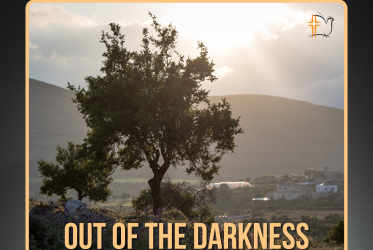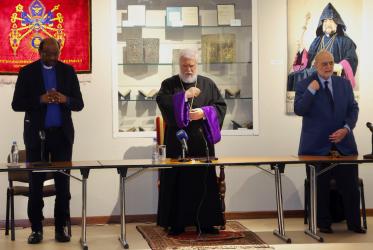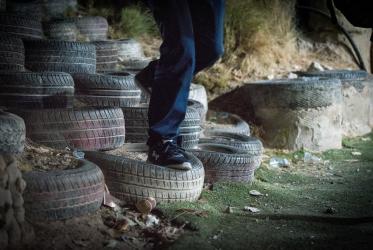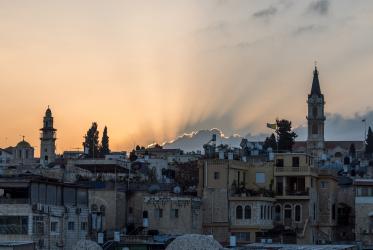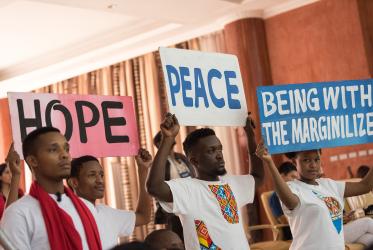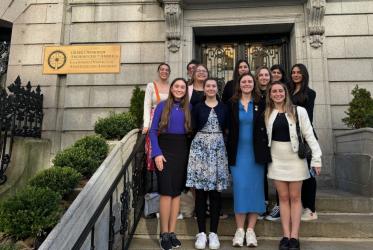Displaying 81 - 100 of 10221
25 March 2024
Des mots de ténacité résonnent dans les décombres
25 March 2024
Stimmen der Standhaftigkeit inmitten der Zerstörung
25 March 2024
Entre los escombros resuenan palabras de firmeza
25 March 2024
Compêndio De Práticas Promissoras de intervenções de comunidades religiosas africanas contra o HIV em crianças e adolescentes
Sumário Executivo
23 March 2024
Compendium of Promising Practices of African Faith Community Interventions against Paediatric and Adolescent HIV
Executive Summary
23 March 2024
Easter prayers – by Rev. Meghan Johnston Aelabouni
21 March 2024
Words of steadfastness ring from the rubble
21 March 2024


